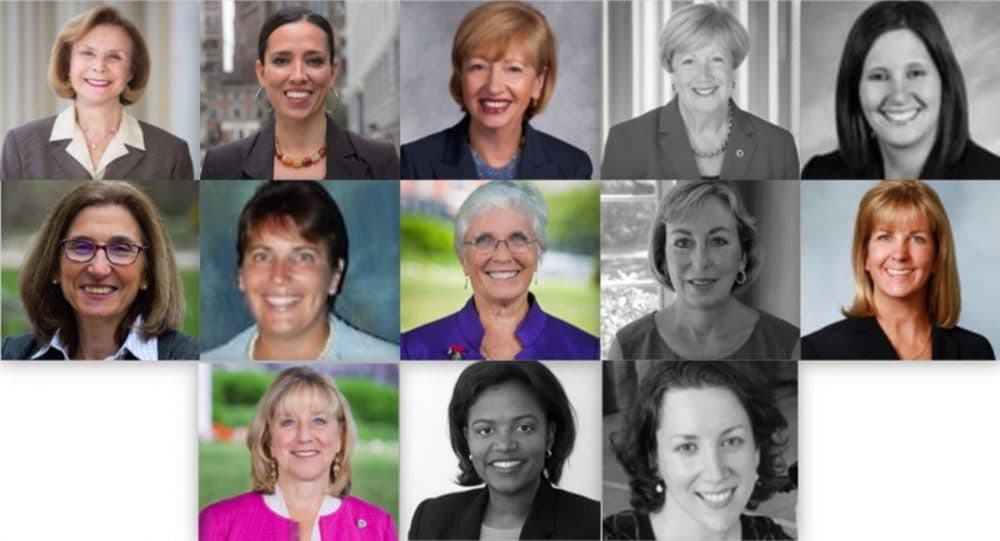Advertisement
After Hitting High, Ranks Of Women In Mass. Senate Quickly Shrinking

Eight months after the number of women in the Massachusetts Senate tied an all-time high-water mark, their ranks are now on track to reach a low last recorded nearly two decades ago.
As the Senate has elected its second-ever female president amid leadership turmoil and coalesced behind a lawmaker who's on track to become the third, three women have made plans to leave the chamber for other jobs and two others have announced they won't seek reelection.
Arlington Sen. Cindy Friedman's swearing-in in July 2017 brought the number of women in the 40-seat Senate up to 13, all Democrats.
In the seven months since Gov. Charlie Baker appointed then-Sen. Jennifer Flanagan to the Cannabis Control Commission in August, that number has dropped down to 11 and will soon become 10, leaving women with one-quarter of Senate seats in a state where more than 51 percent of the population is female.
According to the Center for American Women and Politics at Rutgers University, the last time there were 10 women in the Massachusetts Senate was 1999, with nine Democrats and one Republican.
Linda Dorcena Forry resigned her Senate seat in January for a job heading up diversity and inclusion efforts at Suffolk Construction, and Sen. Eileen Donoghue plans to resign after she was selected last week as Lowell's next city manager.
Flanagan was succeeded by Fitchburg Republican Dean Tran, and South Boston Democrat Rep. Nick Collins is the only candidate on the ballot in a primary election set for Tuesday for Forry's seat. A special election will not be held to replace Donoghue.
Donoghue is also the Senate chair of Massachusetts Caucus of Women Legislators, a post held by Flanagan before her.
Two other female senators plan to finish their terms but not run again in the fall — Sen. Barbara L'Italien of Andover is running for an open congressional seat, and Sen. Kathleen O'Connor Ives said she wanted to devote more time to her "lovely and demanding toddler."
That leaves a maximum of eight women who could return to the Senate in 2019, though others could join the list — or fall off it — one this year's elections occur. Rep. Diana DiZoglio, for instance, is running for O'Connor Ives' seat, and some male senators have female challengers — Samantha Hammar of Melrose is running for the seat now held by Sen. Jason Lewis, and Northampton's Chelsea Kline last week announced her bid against Sen. Stanley Rosenberg .
Beginning with the 1937 election of Brookline's Sybil Holmes, a total of 41 women have been elected to the state Senate, according to data from the Massachusetts Caucus of Women Legislators.
The current longest-serving woman in the Senate is Majority Leader Cynthia Creem of Newton, elected in 1999, who in February became the first female majority leader to serve under a female Senate president.
Senate President Harriette Chandler, a Worcester Democrat, assumed leadership of the branch in December after Rosenberg stepped aside as president amid an investigation into whether he broke Senate rules in connection with allegations that his husband sexually harassed men with business before the Legislature and interfered in Senate matters.
Ways and Means Chairwoman Karen Spilka of Ashland announced in March that she has lined up the votes to become the next president.
With 39 women in the House, women currently hold a quarter of the Legislature's 200 seats. Massachusetts ranks 27th among the states for its representation of women in the Legislature, according to the Center for American Women and Politics.